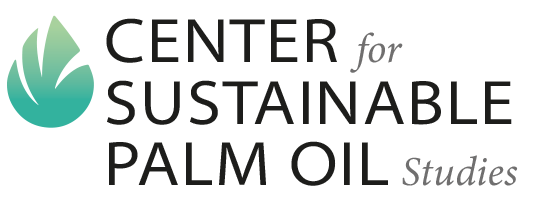
“The Commission has tabled detailed and ambitious proposals for achieving our objective of a 55% reduction in greenhouse gas emissions by 2030. We want to achieve this in a way that is economically efficient and socially fair”, President of the European Commission Ursula von der Leyen said during an official visit to France on 6 and 7 January to mark the start of the 6-month French Presidency of the Council of the EU.
It is indeed true that the EU has been at the forefront of devising some of the most ambitious and implementable steps to mitigate the risks of climate change and other agendas set by the 2030 SDGs, but it is also not untrue that while doing so, it has resorted to measures that violate the very essence of the UN’s 2030 Agenda for Sustainable Development – leave no one behind.
There is an African proverb that says that in order to go far, you must go together. Sadly, recent actions by the EU regarding trade and use of certain agricultural, and agriculture-based, products on the European continent mean millions of people would be left behind in the progress towards the 2030 sustainability goals and as a global community, we would not be getting much further ahead.
The commission maintains that one of the key drivers of climate degradation across the globe is deforestation fueled by agricultural expansion for producing commercial commodities like cattle, wood, palm oil, soy, cocoa or coffee. As a large-scale consumer, and powerful one and that too, the EU would be rolling out a number of legislative and policy measures in the months ahead that would necessitate improved human rights and environmental due diligence obligations, as well as deforestation-free certifications for companies producing and marketing the said commodities.
While this unilateral EU approach of what is and what should be appears to aid climate action, it puts millions of livelihoods across the globe at stake, leaves hundreds of thousands of families staring poverty in the face and compromises global sustainability goals.
Take the case of the oil palm industry, for example. Around 6 million people worldwide depend on production and trade of palm oil for their livelihoods, 2.2 million of whom are smallholder farmers. Then follow millions of day laborers and daily wagers toiling in palm fields each day to earn a day’s worth of bread. Despite many studies corroborating that palm oil production is the most efficient way of supplying the growing global demand for vegetable oil, rushed policy measures like boycotts and trade embargoes would only work towards further marginalizing an already marginalized working class and add to existing levels of hunger, poverty and anger towards those setting these measures in motion.
While initiating these policies, the EU has forgone a basic principle of human-human relationship; which is that punitive offensives never yield the desired results. The buildup of nations is nothing but a mammoth aggregate of individuals and the existence of any nation is defined and shaped by the very sentiments and factors that an individual human is driven or deterred by – sustenance, progress, reward, clout, fear, affection and the basic urge to exist peacefully.
And if logic has anything to teach us, it is that policies of punishment only give rise to destructive opposition.
In the case of EU’s non-tariff barriers for the palm oil and other industries, the commission is basically initiating an offensive. It is looking for quick results without doing its share of the hard exercise. The EU is invoking its might to impose a time-out, telling economically challenged communities to deal with the problems themselves, as it can’t, or wouldn’t want to, deal with them by itself.
Similar to human adults who have a greater exposure and can better foretell what could and could not cause harm, the EU too is akin to a more powerful, more advanced and more resourceful sibling to the global community and must rely on more than physical means to achieve perceived ends that make this world a sustainable one. It must not dissociate; it must not invoke punishments and it must in no way impose time-outs.
If the EU is in fact concerned about climate action and minimizing environmental degradation, it must take the greater burden of responsibility, lean in and help developing nations change for the better. It cannot simply conditionalize, restrict or eliminate usage of commodities that have alleged links to questionable supply chains and put on a “holier-than-thou act” itself.
The EU would have to delve deeper and get involved with governments, businesses, communities and individuals engaged with the commodities in question. If it is looking for stricter standards involving certifications, it would have to work with the concerned governments and assist them in developing the capacity for implementing serious reforms in environmental laws and see that these certifications conform to EU’s own benchmarks. For example, it could work more closely with palm oil producers to help strengthen any weak links to ensure that palm oil suppliers and producers are brought further in line with EU’s sustainability benchmarks.
If it would like due diligence on part of plantation owners and farmers, it would have to offer its superior expertise and knowledge that informs them about sustainability and how to incorporate sustainable farming practices in their traditional techniques, offer solutions for improving per acre yields and suggest profitable ways for utilization of waste to aid income.
Incorporating sustainable practices in traditional methodologies requires investment, something smallholder farmers would find extremely hard and large corporations relatively easy to do. This could lead to a further concentration of wealth and descent into poverty for millions of people. The EU would have to step up and make way for offering support to governments and small landholders to help them conform to demands for sustainability.
Furthermore, the past years have seen the palm oil industry taking important steps towards the right direction with the establishment of national palm oil certification schemes. In Malaysia, the MSPO scheme requires producers to meet certain environmental and labor rights standards with the Malaysian government issuing sanctions for non-compliant producers. It is crucial that the EU is not disregarding these steps but willing to support them.
The EU cannot simply demand improved human rights conditions; it must work with domestic and international stakeholders to advise and push governments for policy, judicial and policing reforms which ensure that the rights of workers and laborers are protected and their exploitation exterminated.
Two weeks ago, in her ‘State of the World’ special address at the World Economic Forum, EU President von der Leyen said, “We now have the first ever European Climate Law, ensuring that our climate targets are not just an ambition, but a legal obligation. We have now proposed a detailed legal framework to ensure that we can reduce our emissions by at least 55% by 2030. This is our roadmap for the next decade.”
Well, if the EU is looking at the leader’s position in the economy of the future, it must take into account that leadership is mostly about giving. But a leader’s giving is not of orders or directives or punishments, it is of giving comfort, support, aid, advice, security, solace and above all, hope.
It’s time for the EU to walk the talk.







